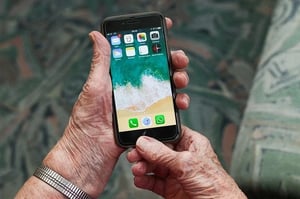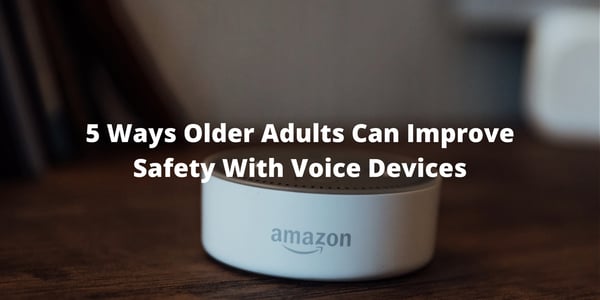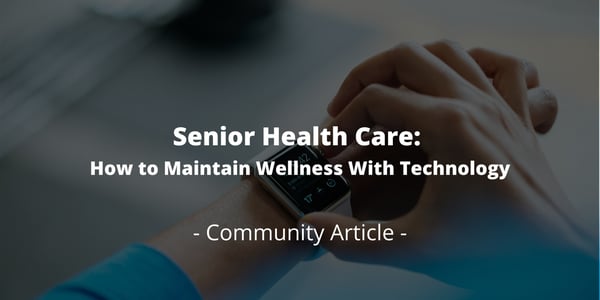One of the most common symptoms of aging is experiencing easy bruising. Unlike younger individuals,...
10 Healthy Habits to Overcome Digital Fatigue
What is Digital Fatigue?
 Digital fatigue is a state of mental exhaustion that is a side effect of our modern, ever-connected life. We are rarely more than a few inches from our mobile devices. We use them for every conceivable purpose. We are always "on" and constantly connected through social media, email, text messages, calls, and more. For many people, work or other forms of digital entertainment follow them on digital devices all hours of the day. This constant deluge of information leads to a feeling of being overwhelmed and burnt out.
Digital fatigue is a state of mental exhaustion that is a side effect of our modern, ever-connected life. We are rarely more than a few inches from our mobile devices. We use them for every conceivable purpose. We are always "on" and constantly connected through social media, email, text messages, calls, and more. For many people, work or other forms of digital entertainment follow them on digital devices all hours of the day. This constant deluge of information leads to a feeling of being overwhelmed and burnt out.
Signs of digital fatigue include:
- Burning, itching, or sore eyes
- Sore neck, shoulders, and back
- Light sensitivity
- Headaches
- Trouble concentrating
- Irritability
- A pervasive sense of despondency
10 Ways to Combat Digital Fatigue
Luckily, digital fatigue is easy to overcome. Here are ten steps you can take to escape from the clutches of digital fatigue.
-
Take Screen Breaks
Between work, home, and socializing, we spend a lot of time engaging with screens. Often, we fill our leisure time with scrolling on our mobile devices. In some cases, we are in front of a screen all day, almost every day. This is not a desirable state of affairs. Carve out some screen breaks, even ten or fifteen minutes. Take a walk without your phone. Have your morning tea or coffee without the warm glow of social media. If you have a busy schedule, set fifteen-minute screen breaks into your calendar two or three times a day, and follow them religiously.
-
Take a Nap
Is a nap inconceivable? It may be time to find a way to conceive it. Closing your eyes and resting is an excellent way to take a break from your digital devices. Also, it's good for your brain. PubMed reports that a 30-minute nap lets your brain enter a slow-waveform sleep pattern. This helps restore your sense of alertness and your memory - almost like rebooting a lagging computer. If you have a one-hour lunch break, put up the sunshades, recline the seats, and try taking a half-hour snooze in your car.
Click here to learn more about the pros (and cons) of taking a nap!
-
Blue-Light Filters
Digital gadgets like our beloved mobile phones, tablets, and laptops emit blue light. The properties of blue light lead to eye strain, dry eye, and ocular irritation and can even interfere with your sleep cycle. Blue-light filters can help reduce eye strain. For those who wear glasses or contacts, your lenses may have blue-light filtering options available. For those who do not, many devices have 'night shift' or red-light settings that change the color balance to a redder hue in the dark hours. Some doubt that blue light affects your eyes, but the research is clear that it can affect your sleep cycle and lead to fatigue. Blue light filters can help reduce the impact on your sleep cycle.
-
Return to Off-Screen Alternatives
 Sure, reading a book on your phone or scrolling through the news on an app is convenient, but is it really the best way to engage with that kind of media? Old-fashioned, printed materials can be fun and offer a tactile experience different from the cold glass of our phones.
Sure, reading a book on your phone or scrolling through the news on an app is convenient, but is it really the best way to engage with that kind of media? Old-fashioned, printed materials can be fun and offer a tactile experience different from the cold glass of our phones. -
Manage Your Attention
Mobile applications are masterful thieves of attention. Most of us have probably experienced some version of the App Trance, where we find ourselves mindlessly flipping through a couple of apps while we are supposed to be listening to a meeting, a zoom call, or a presentation. This kind of multitasking is counterproductive: it makes it harder to focus well enough on any one task to do a good job of it, meaning we do shabbier work when we're distracted. Try to pull your attention away from the bottomless hole of social media for a bit.
-
Find a Way to Connect to Tangible Things
More and more, we live in some mixture of real physical and digital space. This is a new experience for human beings. It is helpful to get out and connect to something that doesn't require an electronic device. Bird watching, walking, hiking, meditation, fishing, yoga, or even an exercise session at the gym can help break the digital tedium.
-
 Limit Screen Time
Limit Screen TimeThere are a lot of applications on the market that can help you manage your screen time. iOS and Android devices have automation features that can set timers when certain apps open, so you know you won't spend more than five minutes flipping through social media.
-
Set Boundaries
In an ever-connected world, we often receive work-related emails, texts, chats, and other notifications after hours. It is okay to establish a firm boundary when your office hours end and stick to it. It is also okay to turn on do-not-disturb mode at night when you want to unwind before bed. Boundaries are often blurred or ignored today - all the more reason to set and enforce them.
-
Turn Off Self-View
In digital meetings, facetime calls, and other video chats or conferences, we often become preoccupied with ourselves. We are all Narcissus, staring into the tiny square pond with our faces in it. Perhaps we admire our hair or evaluate the crease of our collars. The little selfie in the corner is very attention-getting. Turning off your preview can help you focus and get out of your head.
-
Exercise
Human beings are meant to move about, not to sit hunched over a keyboard for eight hours a day. Moving your body, stretching your muscles, and getting an appropriate amount of exercise benefit every one of your body systems. It also benefits your mental health, and best of all, it can be done without a screen!
Digital fatigue is unlikely to go away any time soon. Even as the year that led us all to meet by Zoom recedes into the distance, our reliance on our digital infrastructure is greater than ever. It is unrealistic to try and fully disengage from that world, but to try and enjoy a healthier relationship with our screen is an excellent and admirable goal. Find ways to manage your devices, balance your life, and care for yourself, and you can avoid the effects of digital fatigue.






